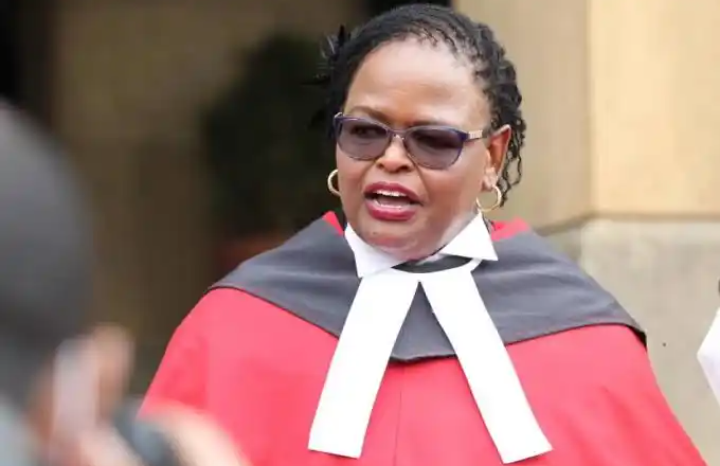A former employee of Standard Chartered Bank, Mr. Charles J. M. Mbuthia, has written a disturbing letter to Chief Justice Martha Koome, raising serious allegations of corruption within Kenya’s Employment and Labour Relations Court (ELRC).
The letter, which has surfaced recently, accuses Justice Maureen Onyango of being bribed by senior executives of Standard Chartered Bank to influence the outcome of his case against the bank.
In his letter, Mbuthia expresses his deep concern over how his lawsuit was handled by the ELRC.
“Dear Martha Koome, I am writing to bring to your attention significant concerns regarding the handling of my lawsuit against Standard Chartered Bank at the Employment and Labour Relations Court,” Mbuthia begins his letter, addressing the Chief Justice directly.
Mbuthia claims that there is substantial evidence showing that Standard Chartered Bank has infiltrated the judiciary, using its influence to sway court decisions in its favor.
According to him, the bank has not only ignored a court order that was issued in his favor but has also developed unusually close relationships with judicial officers.
The letter suggests that two senior officers of the bank even hold official roles within the judiciary, which, Mbuthia argues, has compromised the performance and integrity of the ELRC.
The letter goes on to describe how a senior official at Standard Chartered Bank has publicly ridiculed court rulings, particularly those that tend to favor employees over employers.
Mbuthia notes that a senior executive of the bank, who is also a member of the bank’s Board of Directors, once made unrepentant remarks criticizing a judiciary ruling that was unfavorable to employers.
He also suggests that the Federation of Kenya Employers (FKE) may be entangled in the bank’s negative influence on the judiciary.
In addition to these allegations, Mbuthia claims that he has been threatened with disciplinary actions in an attempt to silence him after he revealed the alleged corruption at the bank.
He asserts that these threats highlight the lengths to which Standard Chartered Bank is willing to go to avoid accountability.
The letter also mentions another judge from the Labour Relations Court, though the details regarding Justice Maureen Onyango are described as particularly damaging.
Mbuthia recounts how a close relative, who also serves as a judge at the ELRC, confided in him about troubling practices within the judiciary, including forum shopping—a practice where cases are deliberately assigned to judges believed to be sympathetic to a particular party.
This relative, according to Mbuthia, commended his efforts to expose these issues and confirmed that Justice Onyango appeared conflicted in his case.
Mbuthia alleges that the lawyer representing Standard Chartered Bank in his case exhibited unethical behavior by openly defending Justice Onyango against his request for her recusal.
This, he argues, raises serious concerns about potential collusion between the bank’s legal representatives and the judiciary.
Mbuthia believes that these cumulative issues led to the suspicious dismissal of his lawsuit against Standard Chartered Bank.
He has since appealed the decision, but his letter to the Chief Justice is a call for broader action.
He urges the Judicial Service Commission (JSC) to conduct a thorough investigation into the matter, to ensure accountability, and to take appropriate actions to restore the integrity of the judiciary.
“I urgently request the JSC to conduct a thorough investigation into these matters, ensure accountability, and take appropriate actions to restore the integrity of the judiciary,” Mbuthia pleads in his letter.
Despite the gravity of his accusations, Mbuthia is careful to clarify that his letter is not intended to influence the outcome of his appeal or any other legal proceedings.
He emphasizes that his intent is not to disparage the ELRC as a whole, acknowledging that the court includes many honorable judicial officers.
Instead, his goal is to address the specific instances of misconduct that he believes are tarnishing the reputation of Kenya’s judiciary.
This letter brings to light serious allegations that, if proven true, could have big implications for both the judiciary and the corporate world in Kenya.
As the public awaits a response from Chief Justice Martha Koome and the Judicial Service Commission, the spotlight remains on the integrity of the Employment and Labour Relations Court and the broader judicial system in the country.





















Add Comment